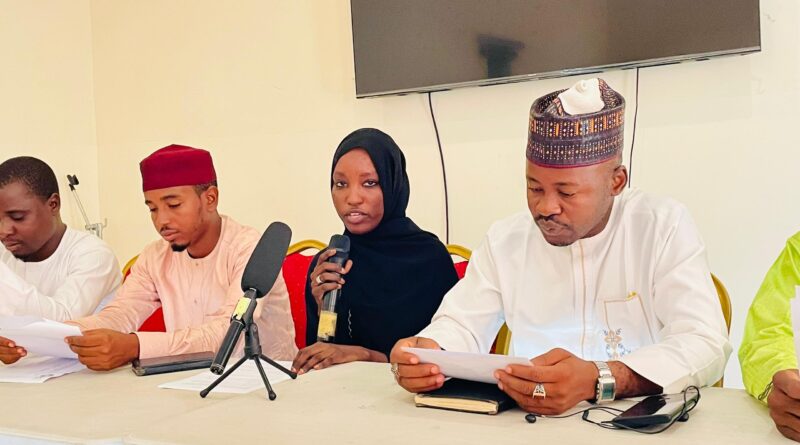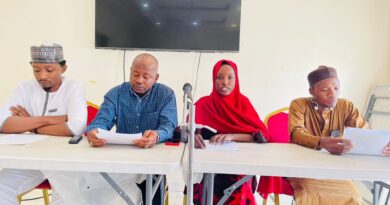CITAD Warns Against Ignoring Gender, Climate Justice in Nigeria’s AI Drive
By Mustapha Salisu
The Centre for Information Technology and Development (CITAD) has cautioned that Nigeria’s push toward artificial intelligence (AI) must be guided by feminist principles and climate justice to avoid deepening inequality and environmental harm.
Speaking during a press briefing on Friday at CITAD’s Kano Office, Project Lead Fatima Babakura, on behalf of the Executive Director, said AI is rapidly transforming societies but also raising urgent concerns around gender, environmental fairness, environmental and climate justice, inclusivity as well as issues of sustainability.
She explained that while Nigeria recognizes AI as a major driver of digital transformation, there has been limited debate on how it intersects with gender equality and climate justice.
According to her, Nigeria’s AI future should not be measured by technological advancement alone but also by its ability to protect human dignity, ensure fairness, and safeguard the environment.
Babakura recalled that during a previous webinar, “The Feminist and Climate Justice Analysis of the AI Strategy 2024,” participants identified pressing issues of algorithmic misrepresentation.
She noted that AI systems often reinforce harmful gender norms, with facial recognition technologies misidentifying women of colour and language models perpetuating stereotypes.
“This exposes the myth that AI is neutral,” she said, adding that the technology reflects the biases of its creators and risks marginalizing communities further.
On environmental impacts, Babakura highlighted that training large AI models consumes massive energy, contributes to greenhouse gas emissions, and generates electronic waste.
Babakura cautioned that although AI is sometimes promoted as a climate solution, many so-called green innovations fail to address root causes and risk reinforcing unsustainable systems.
She pointed to precision agriculture as an example, where tools largely benefit industrial farms while excluding smallholder farmers whom many of them women who lack internet access, literacy, and infrastructure.
Babakura stressed that CITAD is calling for reimagining AI through feminist and climate justice perspectives, emphasizing the meaningful involvement of women and marginalized communities in all stages of AI development and governance, ensuring data justice and sovereignty where communities control the use of their data, and promoting transparency and accountability to open the “black box” of AI to public scrutiny, while also grounding Nigeria’s AI strategies in local realities rather than imported models that do not fit the country’s context.
While emphasizing that technology is never neutral and that the way AI is built and deployed will shape Nigeria’s future. Ignoring gender balance and climate justice, she warned, would only worsen inequality and environmental degradation.
CITAD, she said, remains committed to reshaping Nigeria’s digital transformation agenda to reflect feminist values and environmental sustainability. The organization will continue to engage stakeholders, conduct research, and advocate for policies that close the gender digital divide while fostering climate-resilient innovation.
Babakura concluded that Nigeria’s AI future must serve the public good, protect the planet, and amplify the voices of those most affected by digital and climate injustices.





